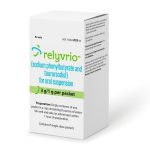
Keeping blood pressure under control could be crucial for women in preventing uterine fibroids, new research shows. Middle-aged women tracked for up to 17 years in a new study were 37% less likely to develop these painful growths if they treated their high blood pressure with medication. On the other hand, “patients with new-onset hypertension had a 45% increased risk of newly reported fibroids,” said a team led by Susannah Mitro, a research scientist at Kaiser Permanente in Oakland, Calif. The findings were published April 16 in JAMA Network Open. As outlined in the study, uterine fibroids are benign but painful tumors that arise in the uterus and affect up to 80% of women by the age of 50. Fibroids can trigger pain and bleeding, but right now there are no known means of preventing them. In the new study, Mitro’s group analyzed 1996-2013 data for 2,570 U.S. women who enrolled in the Study of Women’s Health Across the Nation, beginning at the age of 45. All of these women had no prior history of fibroids when they joined the study, but over the following 17 years, 20% did receive such a diagnosis. The women’s blood pressure was tracked over time, as well. The researchers found strong correlations been blood pressure and a woman’s odds for uterine growths. For example, those who were found to… read on > read on >





























-300x200.jpg)







-300x169.jpg)
